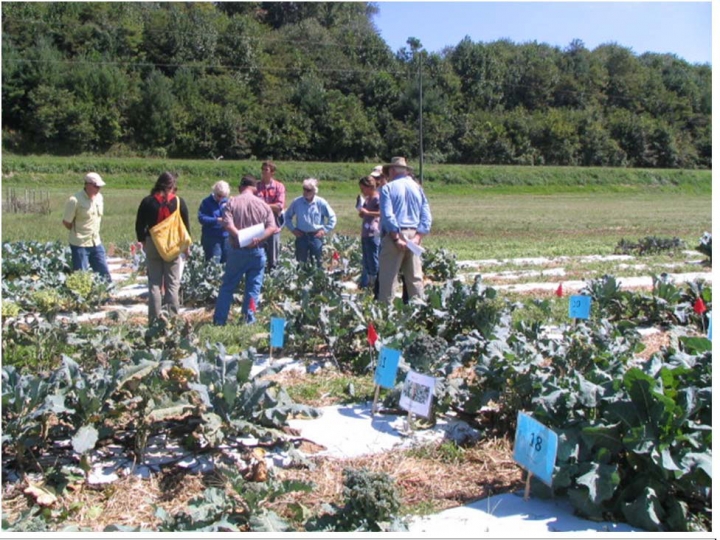Effect of Biosolarization and Cover Crops on Weeds and Soil-borne Pathogens
As the negative health and environmental effects of chemical soil fumigation become more apparent, it is critical to devise safe, alternative methods of soil fumigation. Organic growers constantly struggle with weed control and need innovative, chemical‐free weed management techniques.

 There is high demand for organic broccoli in the Southeast, as shown in a 2013 market survey by Carolina Farm Stewardship Association, which revealed that broccoli is one of the top organic produce items in short supply. Broccoli can be produced most anywhere in the spring and fall, but summer production is limited to cooler growing areas.
There is high demand for organic broccoli in the Southeast, as shown in a 2013 market survey by Carolina Farm Stewardship Association, which revealed that broccoli is one of the top organic produce items in short supply. Broccoli can be produced most anywhere in the spring and fall, but summer production is limited to cooler growing areas. Maize (corn) is an incredibly productive and profitable crop that works well in organic crop rotations in many parts of North America. Since the release of transgenic (GMO) varieties of maize in the mid-1990s it has become increasingly difficult to grow uncontaminated organic maize or to find maize seed that is free of transgene contamination.
Maize (corn) is an incredibly productive and profitable crop that works well in organic crop rotations in many parts of North America. Since the release of transgenic (GMO) varieties of maize in the mid-1990s it has become increasingly difficult to grow uncontaminated organic maize or to find maize seed that is free of transgene contamination.